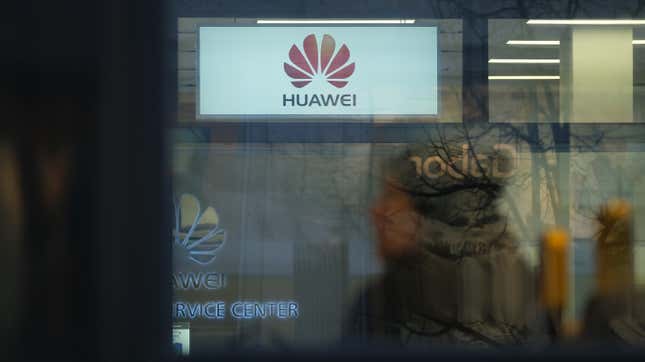
It’s been a rough few months for Huawei, but as of now, it looks like there might be some relief for the Chinese tech giant at the center of recent U.S.–China trade tensions. In a speech in Washington, DC, on Tuesday, U.S. Commerce Secretary Wilbur Ross clarified that while Huawei will remain on the Entity List, his department will issue trade licenses for companies provided “there is no threat to U.S. national security.”
A quick refresher on this whole mess. Back in May, the Trump administration added Huawei and 68 of its affiliates to the Commerce Department’s Entity List—it includes basically any organization, person, or business that require licenses for U.S. companies to trade with—on the basis it was a danger to national security. It was, in effect, a trade ban on Huawei as American firms would require government approval to do business. This resulted in U.S. tech companies, including Google, Intel, and Qualcomm, saying they would no longer supply Huawei with parts—though some later found ways around the ban.
Fast forward to the G20 summit meeting in June, where President Donald Trump and Chinese President Xi Jinping agreed to ease up on new tariffs. President Trump then, seemingly out of the blue, said American companies would be allowed to sell software and hardware components to Huawei. Adding to the confusion, last week U.S. agents were told that despite the president’s comments, Huawei was still blacklisted.
But, according to Secretary Ross’s clarifications, we now know that Huawei is still on the Entity List—it’s just the Commerce Department will ease up on issuing licenses. Ross also added that the department would do its best to make sure that by relaxing restrictions, revenue wasn’t just flying out of the U.S. to foreign firms. He also stated that “the announcement does not change the scope of items requiring licenses from the Commerce Department, nor the presumption of denial.” Reuters reports that Larry Kudlow, director of the United States National Economic Council, added at a separate event on Tuesday that the relaxed restrictions were for a limited period only.
So while both comments shed some light on how the administration plans to handle Trump’s dizzying reversal, they frustratingly raise new questions. It’s not clear what technology does—or doesn’t—pose a threat to national security. It’s also unclear exactly how long relaxed restrictions on licensing will last. Kudlow did clarify to Reuters that the U.S. government would not purchase any Huawei parts, systems, or components—including those for 5G networks.
So while this is undoubtedly a reprieve for Huawei, it’s not an end to its trade woes. The U.S. is still flexing on foreign governments, like Germany, to keep clear of Huawei’s 5G networking technology. (As for the U.S., the Trump administration is reportedly considering requiring all U.S. 5G gear to be made outside of China.) Also, the 90-day General License the Commerce Department issued back when the ban was implemented expires on August 19. The General License was intended to give companies some lead time to find new suppliers, but it’s not clear if it will be extended.